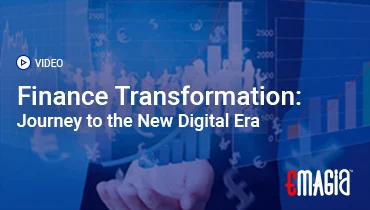Embarking on a career in accounting offers a stable and rewarding path, combining analytical skills with financial acumen. Whether you’re a student considering this profession or someone contemplating a career shift, understanding the journey to becoming an accountant is crucial. This guide delves into the steps, timelines, and considerations involved in pursuing an accounting career.
If you are wondering how to become an accountant, how do you become an accountant, or how can I become an accountant, this comprehensive guide outlines the education, certifications, experience, and skills required to succeed in this profession.
Understanding the Role of an Accountant
Accountants are essential to the financial stability of companies and institutions. Their responsibilities include generating precise financial statements, analyzing financial data, complying with tax laws, and providing strategic financial insights. Professionals in this field work across multiple sectors, including private companies, public accounting firms, government agencies, and non-profit organizations.
Becoming an accountant means taking on responsibilities that directly influence financial transparency, compliance, and business growth. Accountants support budgeting, forecasting, auditing, taxation, and regulatory reporting.
What Does an Accountant Actually Do?
- Prepare and analyze financial statements
- Ensure compliance with tax regulations
- Manage payroll and accounts
- Perform audits and internal controls
- Support financial decision-making
- Use digital tools for reporting and analytics
If you are asking how to be an accountant or what you need to do to become an accountant, understanding these core functions is the first step.
Why Choose Accounting as a Career?
For those exploring the best way to become an accountant, it is important to understand the advantages of this career path.
Career Stability
Accounting is considered recession-resistant. Businesses always require financial reporting, compliance, and tax expertise.
Global Opportunities
Accounting skills are transferable across industries and countries, making it easier to pursue international opportunities.
Professional Growth
From entry-level accountant to CFO, the profession offers strong upward mobility.
Steps to Become an Accountant
If you are researching steps to become an accountant or steps to becoming an accountant, the process typically follows a structured path.
1. Obtain a Bachelor’s Degree
The path to becoming an accountant usually begins with obtaining a bachelor’s degree in accounting or a related field like finance or business administration. These programs usually require between 120 to 125 credit hours and take about four years to finish. Students are introduced to core subjects such as auditing, business law, taxation, managerial and financial accounting.
This is the foundation of the process of becoming an accountant. Without formal education, it is difficult to advance in the field.
2. Gain Practical Experience
Hands-on experience is a crucial aspect of building a career in accounting. Many undergraduates engage in internships to acquire practical exposure. After graduation, starting positions like accounting assistant or junior accountant help bridge the gap between academic learning and professional practice.
If you are asking how can I be an accountant quickly, gaining early internship experience during your degree is one of the smartest moves.
3. Consider Certification
Though not obligatory for every accounting job, earning a professional credential can significantly boost one’s career prospects. The Certified Public Accountant (CPA) license is particularly respected in the U.S. To qualify, candidates generally need to:
- Students are generally required to complete a minimum of 150 credit hours in higher education coursework.
- Pass the Uniform CPA Examination.
- Acquire one to two years of relevant work experience, depending on the state.
In India, the Chartered Accountant (CA) qualification, administered by the Institute of Chartered Accountants of India (ICAI), is equivalent. The CA course includes clearing the Foundation, Intermediate, and Final levels, along with fulfilling practical training requirements.
Certification plays a major role in the routes to becoming an accountant at a senior level.
4. Specialize in a Field
Accountants may also choose to focus on specialized fields such as audit, taxation, forensic accounting, or managerial accounting. Specialization typically demands further training or certification, but it opens doors to more niche roles in the profession.
This step strengthens the overall process of becoming an accountant and helps professionals differentiate themselves.
Alternative Routes to Becoming an Accountant
Is There a Quickest Way to Become an Accountant?
The quickest way to become an accountant is completing a bachelor’s degree while simultaneously gaining internship experience and preparing for certification exams. However, there is no shortcut that replaces formal education and practical training.
Fastest Way to Become an Accountant for Career Switchers
For professionals changing careers, enrolling in an accelerated accounting program or post-graduate diploma can reduce the timeline. This is often considered the fastest way to become an accountant for working adults.
Easiest Way to Become an Accountant
The easiest way to become an accountant is to follow a structured academic route, seek mentorship, and gradually build experience. While no path is effortless, consistency and planning simplify the journey.
Timeline: How Long Does It Take to Become an Accountant?
The duration to become an accountant varies based on education, certification, and experience:
- Bachelor’s Degree: Typically 4 years.
- CPA Certification: This process may add another one to two years, considering the credit hour requirements and preparation time for the CPA exams.
- Total: Approximately 5-6 years.
For those pursuing the CA designation in India, the process can take around 4.5 to 5 years, including education and practical training .
If you are asking how many years to become an accountant, the average answer is between four and six years depending on certification goals.
Core Skills Required to Become Accountant
Skills and Qualities of a Successful Accountant
In addition to academic qualifications and certifications, successful accountants bring a range of skills and qualities to the table:
- Analytical Thinking: Capable of interpreting and drawing insights from financial information.
- Detail-Oriented: Maintains high levels of accuracy in recordkeeping.
- Ethical Integrity: Committed to confidentiality and professional ethics.
- Clear Communication: Able to present complex financial data in a simple and effective manner.
- Technical Proficiency: Skilled in using modern accounting tools and software.
Digital and AI Skills in Modern Accounting
Modern accountants must understand automation, data analytics, and AI-driven tools. Knowledge of digital platforms enhances career readiness.
Learn more about modern finance automation at Order-to-Cash Process.
Career Opportunities and Outlook
The outlook for accounting professionals remains positive, with opportunities available across a variety of industries. According to data from the U.S. Bureau of Labor Statistics, the median annual wage for accountants and auditors was $81,680 as of May 2024. Similarly, in India, the profession is expanding, with Chartered Accountants serving essential functions across diverse sectors.
Career Paths in Accounting
- Public Accountant
- Corporate Accountant
- Tax Consultant
- Internal Auditor
- Forensic Accountant
- Financial Analyst
- Chief Financial Officer
Common Questions About Becoming an Accountant
How Do I Become an Accountant Without an Accounting Degree?
Some professionals transition into accounting through postgraduate diplomas or certifications. However, a formal accounting education significantly improves prospects.
How to Become a Accountant After 12th?
Students can enroll in a bachelor’s program in accounting or commerce. In India, students may pursue the CA pathway directly after 12th grade.
How Emagia Supports the Next Generation of Accountants
As the accounting profession evolves, technology plays an increasingly important role. Emagia helps aspiring professionals gain exposure to AI-driven finance automation, intelligent cash flow management, and predictive analytics.
Platform Capabilities
- AI-powered accounts receivable automation
- Real-time financial dashboards
- Predictive cash flow forecasting
- Data-driven analytics for financial decision-making
Business Value for Aspiring Accountants
Understanding modern automation tools prepares professionals for leadership roles. Emagia platforms allow finance teams to improve efficiency and reduce manual processes.
Explore integrated digital finance solutions at Accounts Receivable Management Solutions.
How Emagia Empowers Aspiring Accountants
Emagia offers advanced digital solutions that streamline financial processes, making it an invaluable tool for modern accountants. By integrating artificial intelligence and automation, Emagia enhances efficiency in areas such as accounts receivable, cash flow forecasting, and financial analytics. Aspiring accountants can leverage Emagia’s platforms to gain hands-on experience with cutting-edge financial technologies, preparing them for the evolving landscape of the accounting profession.
Frequently Asked Questions
How do you become an accountant?
The typical path to becoming an accountant involves earning a bachelor’s degree in accounting or a related area, gaining hands-on experience via internships or entry-level roles, and, if desired, obtaining credentials such as CPA or CA depending on the regional requirements.
How Long Does It Take to Become an Accountant?
Becoming an accountant usually takes about 4 years for a bachelor’s degree, plus an additional 1-2 years if pursuing certifications like the CPA, totaling approximately 5-6 years.
What does it take to be an accountant?
Being an accountant requires a strong foundation in accounting principles, attention to detail, analytical skills, ethical judgment, and proficiency in accounting software.
How many years to become an accountant?
The standard duration for a bachelor’s degree in accounting is approximately four years. Pursuing certifications like CPA or CA may add an additional one to two years, depending on your progress and jurisdiction.
What are the steps to become an accountant?
The steps include earning a bachelor’s degree, gaining practical experience, obtaining certifications (if desired), and choosing a specialization within the accounting field.
What is the quickest way to become an accountant?
The quickest way to become an accountant is to complete a bachelor’s degree efficiently, gain internships early, and prepare for certification exams simultaneously.
How can I become an accountant successfully?
Focus on education, practical experience, professional certification, and continuous learning. Building digital and analytical skills enhances long-term success.
Embarking on a career in accounting is a journey that combines education, practical experience, and continuous learning. With the right dedication and resources, you can establish a successful and fulfilling career in this essential field.


